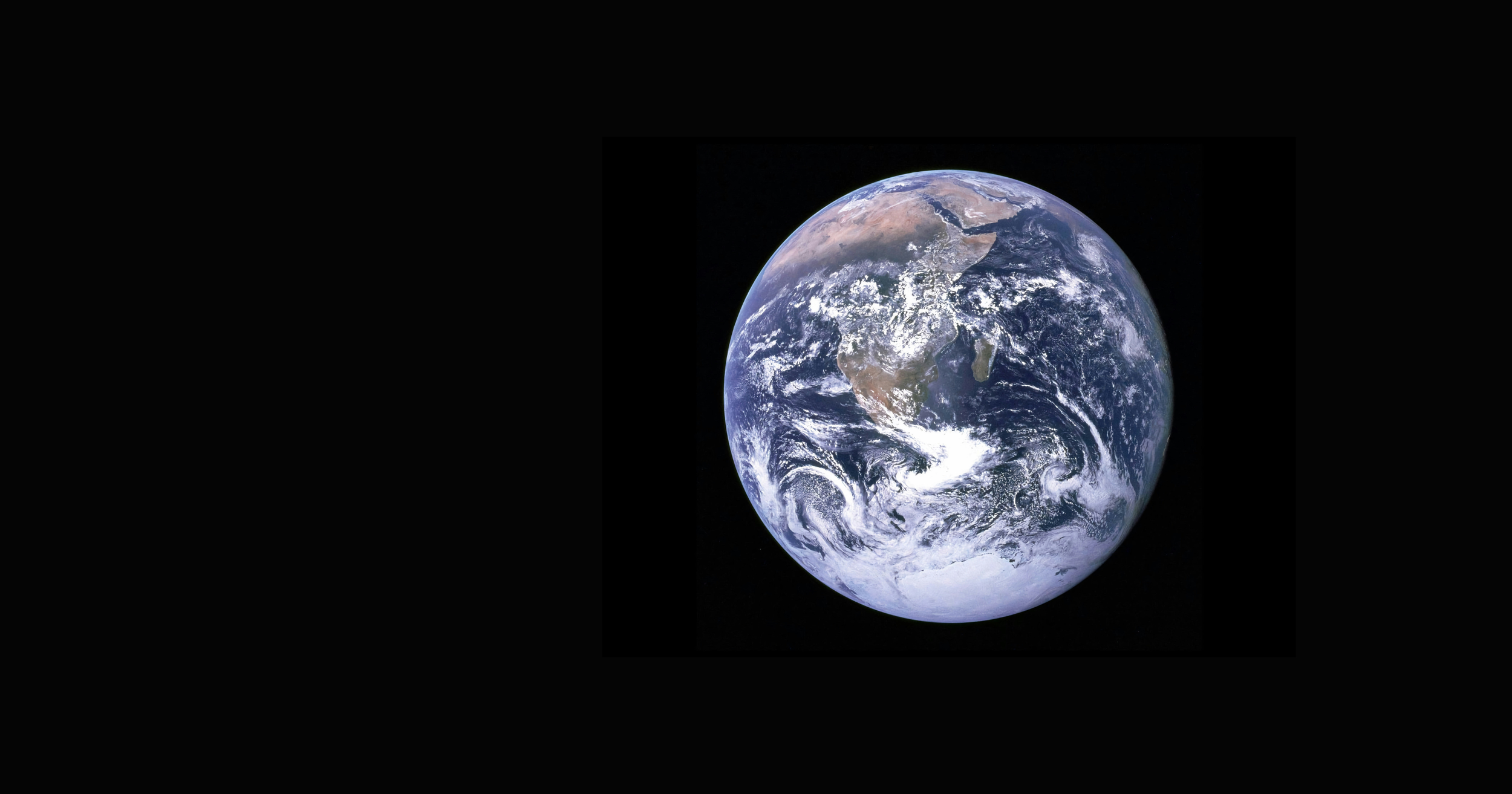
The Psygaia Hypothesis
Explore how psychedelics enhance health through connection to Nature.
You are part of a vast interconnected living system—an evolving planet where all life is connected. You have the innate ability to connect with, learn from, and transform alongside this living planet. Humanity’s ancient relationship with intelligent plant and fungi organisms plays a crucial role in maintaining planetary health, guiding us towards a deeper understanding of ourselves and our relationship to life.
Psychedelics serve as powerful tools for self-discovery, spiritual growth, and healing. They provide profound insights into the mind's vast capabilities, enhance mental effectiveness and creativity, and facilitate educational experiences that promote deeper understanding of through integrated perspectives. As humanity collectively confronts urgent challenges, psychedelics emerge as transformative allies, possessing immense potential to address the crises threatening both human wellbeing and the natural world.
Get in touch to discuss the hypothesis.
Why do some mushrooms and plants occasion deeply meaningful spiritual experiences that reveal to humans the interconnection of all life?
Your insights matter.
Help us deepen our understanding of how psychedelics contribute to health by taking our survey. By participating, you’ll play a role in advancing our ecological-psychedelic research, enhancing support services, and shaping future of Psygaia.
Overview
The Psygaia Hypothesis is an interdisciplinary framework that explores how naturally-occurring psychedelics—like psilocybin, DMT, and mescaline—produced by living organisms, may help connect the human organism with the living systems of the Earth.
Drawing from systems theory and ecopsychology, it proposes that these substances facilitate a kind of cognitive symbiosis: a co-evolutionary relationship in which humans and psychedelic-producing organisms exchange information in ways that adapt human cognition, perception, emotion and behaviour to the planetary system.
Rather than framing psychedelics solely as instruments of personal healing, the Psygaia Hypothesis proposes that they act as agents of ecological intelligence—facilitating access to patterns of connection and interdependence embedded within the living systems of the Earth. These experiences may emerge not only from neural activity within the human brain, but through interspecies biosemiotic exchanges: evolved processes of chemical and symbolic communication between humans and psychedelic-producing organisms that transmit ecological information and support the continuity of life within Earth’s self-regulating systems.
The states accessed through the ingestion of psychedelics often reveal the deeply relational nature of life, dissolving perceived boundaries between self and other while challenging today’s more common mechanistic and anthropocentric ways of seeing the world. However, the Psygaia Hypothesis also warns that these psychedelic experiences alone are not enough to engender deeper ecological intelligence. Without thoughtful integration into culture, education, and ethics, ecologically-mediated psychedelic insights risk being reabsorbed into the same systems of disconnection and exploitation they seek to heal.
Ultimately, the Psygaia Hypothesis offers not just a new way of thinking about psychedelics, but a praxis—a way of using them in service of ecological responsibility, cultural renewal, social cohesion and planetary health. It invites us to reimagine the psychedelic renaissance not as a return to consumer wellness or clinical symptom relief, but as a call to realign human life with the intelligence of the living Earth.

Alienation from nature and the loss of the experience of being part of the living creation is the greatest tragedy of our materialistic era. I therefore attribute absolute highest importance to consciousness change, and I regard psychedelic as catalysts for this.
— Albert Hofmann
Key Concepts
At the heart of the Psygaia Hypothesis is the proposition that psychedelic compounds—produced by fungi, plants, and other organisms—facilitate a form of cognitive symbiosis: altered states of consciousness arising from chemically mediated relationships between species. These relationships enable a temporary merging of human and nonhuman intelligences, granting access to forms of ecological intelligence that support perception, cognition, emotion and behavior attuned to the needs of living systems.
This framework draws on growing recognition that plants and fungi exhibit forms of intelligence—complex adaptive behaviors such as communication, learning, and problem-solving. Through interspecies communication, humans may engage with these nonhuman intelligences in ways that transmit valuable environmental information. Psychedelics may thus function as molecular interfaces between human cognition and the ecological information networks in which all life participates.
These ecological information networks consist of chemical and semiotic processes—signalling systems through which organisms send and receive messages about stress, resource availability, climate variation, and more. Interspecies biosemiotic exchange, a core concept in the hypothesis, refers to the mutual transmission of meaning through chemical and symbolic cues. Psychedelic molecules such as psilocybin or DMT may open perceptual access to these exchanges, allowing humans to receive ecological information that is otherwise processed unconsciously or not at all.
Importantly, these altered states often feature a breakdown of the boundary between self and environment, an intensified sense of connection, and enhanced pattern recognition—capacities that may have adaptive value. By reorganizing the brain’s typical information-processing architecture, psychedelics may allow for a kind of ecological resonance: a felt and embodied awareness of interdependence within larger living systems.
The Psygaia Hypothesis, then, does not treat psychedelic experiences as purely internal or subjective. Instead, it positions them as emergent properties within a broader system, in which perception is influenced by intelligences that cross species boundaries. Through this lens, psychedelics are understood not as escape mechanisms or isolated therapeutic agents, but as catalysts for renewed participation in the communicative fabric of life.
Why do some mushrooms and plants occasion deeply meaningful spiritual experiences that reveal to humans the interconnection of all life?
Your insights matter.
Help us deepen our understanding of how psychedelics contribute to health by taking our survey. By participating, you’ll play a role in advancing our ecological-psychedelic research, enhancing support services, and shaping future of Psygaia.
The Disconnection Crisis
The Psygaia Hypothesis is grounded in the recognition that the ecological crisis is also a crisis of perception. The Anthropocene—a term used to describe the current epoch of human-driven planetary disruption—reflects not only technological and economic forces, but a deeper disconnection between human consciousness and the living systems of the Earth. This disconnection manifests psychologically as alienation, spiritually as meaninglessness, and ecologically as the breakdown of planetary systems.
Modern industrial societies are shaped by worldviews that emphasize separation: between mind and body, self and other, culture and nature. These dualisms have deep historical roots, reinforced by scientific materialism, mechanistic metaphors, and colonial modes of extraction. As a result, human beings are often treated as autonomous agents acting upon a passive environment, rather than as participants embedded within dynamic ecological systems. This worldview legitimizes patterns of consumption, exploitation, and domination that undermine, personal wellbeing and planetary health.
Psychologically, this disconnection has been linked to rising rates of anxiety, depression, and existential distress. Spiritually, it often produces a loss of belonging, as individuals struggle to find meaning in a world perceived as inert or indifferent. Ecologically, it enables ongoing harm: biodiversity loss, climate instability, and the degradation of vital life-support systems. The disconnection crisis is thus multidimensional, cutting across inner experience, cultural norms, and planetary consequences.
The Psygaia Hypothesis suggests that psychedelic experiences may temporarily dissolve these inherited boundaries and restore a felt sense of interdependence. In doing so, they do not merely generate insight—they disrupt the perceptual habits that sustain disconnection. By altering how reality is structured in consciousness, psychedelics may help reintegrate the self into the ecological matrix from which it has become estranged.
Ultimately, addressing the disconnection crisis requires more than technological solutions. It demands a transformation in how we perceive, relate, and participate in the world. Psychedelics, when used with care, context, and intention, may serve as catalysts for this transformation—not by offering escape, but by reorienting attention toward the patterns of relationship that sustain life.

It's clearly a crisis of two things: of consciousness and conditioning. We have the technological power, the engineering skills to save our planet, to cure disease, to feed the hungry, to end war; But we lack the intellectual vision, the ability to change our minds. We must decondition ourselves from 10,000 years of bad behaviour.
— Terence McKenna
Gaia & Systems
The Psygaia Hypothesis is grounded in a systems-oriented understanding of life. It draws from Gaia theory, which proposes that Earth functions as a self-regulating system composed of interdependent biological, atmospheric, geological, and chemical processes. First articulated by James Lovelock and further developed by Lynn Margulis, Gaia theory reframes the planet not as a backdrop for life, but as a dynamic and evolving whole in which life actively shapes the conditions for its own persistence.
Within this framework, ecosystems are not passive or mechanistic, but intelligent in the sense that they self-organize, adapt, and maintain balance through feedback loops. This perspective challenges the reductionist assumptions of classical science and invites a more relational and participatory understanding of life. Systems thinking emphasizes interconnection, emergence, and nonlinearity—concepts that align closely with the experiential insights reported during psychedelic states.
The Psygaia Hypothesis explores the possibility that psychedelics function as perceptual mediators within this planetary system. By altering the organization of consciousness, they may reveal underlying patterns of feedback, interdependence, and mutual influence that characterize Earth’s living dynamics. In this view, psychedelics do not simply generate subjective effects—they amplify awareness of systems-level relationships already at play within and around the individual.
These experiences often include a direct sense of the Earth as alive, intelligent, and communicative—a perspective long held by Indigenous traditions and increasingly explored by contemporary ecological science. Rather than hallucination, such perceptions may reflect an expanded sensitivity to relational information that is normally filtered out by the brain’s default modes of attention.
By engaging both scientific and experiential dimensions, the Psygaia Hypothesis offers a framework for understanding the ecological significance of psychedelic experiences. It suggests that psychedelics may help humans perceive themselves not as separate observers, but as participants within a living system whose health depends on reciprocal awareness and care.

Paying attention is a form of reciprocity with the living world, receiving the gifts with open eyes and open heart.
— Robin Kimmerer
Ecological Mediators
The Psygaia Hypothesis proposes that psychedelics act as ecological mediators—substances that help restore perceptual, cognitive, emotional, and behavioral alignment between human beings and the living systems they inhabit. Rather than merely altering consciousness in a pharmacological sense, these compounds modulate the patterns through which humans relate to self, society, and environment. In doing so, they may reorient attention away from individualistic and extractive modes of being and toward ecologically adapted forms of participation within the planetary system.
Research consistently shows that psychedelic experiences can produce a heightened sense of connection to nature, dissolution of ego boundaries, and increased feelings of unity with life. These effects are not incidental—they are central to the phenomenology of the experience. Participants often report a deepened recognition of interdependence, a reverence for life, and an intuitive sense of belonging to something greater than the individual self. These insights are sometimes accompanied by strong affective responses, such as awe, grief, or compassion, which appear to catalyze sustained shifts in values and behavior.
From the perspective of the Psygaia Hypothesis, these experiences are not simply psychological or symbolic—they may represent a recalibration of human perception in relation to ecological reality. Psychedelics temporarily disrupt entrenched cognitive habits, making space for alternative ways of seeing and knowing. By suspending the filters that separate self from world, they may reveal patterns of relationship that are otherwise inaccessible: the subtle rhythms of ecosystems, the communicative presence of other species, the complex feedback loops that sustain life.
These altered states may also increase sensitivity to ecological information already present in the environment, including chemical signals exchanged between organisms. By bringing this information into consciousness, psychedelics may support the development of ecological empathy—an embodied understanding of one’s embeddedness in a web of mutual influence and co-becoming.
Psychedelics serve not only as internal catalysts for transformation, but as relational allies that mediate between the human organism and the wider planetary community. They reveal a world that is alive, intelligent, and responsive—and invite us to participate in it with greater humility, reciprocity, and care.

This is a world of nature to which we belong, absolutely. It is the circle of life, of which we are an integral part. Open your eyes, and see the browns and greens of the earth, and the light which is the essence of nature. The young need to become aware of this circle of life, and realize that it is possible to experience the beauty and deep meaning which is at the core of our relation to nature.
— Albert Hofmann
Future Directions
The Psygaia Hypothesis opens new avenues for research, practice, and cultural change. It suggests that the significance of psychedelics lies not only in their therapeutic potential, but in their capacity to realign the human with the living systems of the Earth. This shift invites interdisciplinary collaboration across neuroscience, ecology, anthropology, and philosophy, as well as deeper engagement with Indigenous knowledge systems that have long understood psychedelics as tools for relational and ecological insight.
Future research might explore how different compounds, settings, and ceremonial frameworks influence ecological perception and behavior. Longitudinal studies could examine whether psychedelic experiences catalyze sustained changes in environmental attitudes, pro-social behavior, or participation in regenerative practices. Biosemiotic and systems-theoretic approaches may offer new ways of understanding psychedelic experiences not as hallucinatory phenomena, but as forms of information exchange within a distributed network of life.
In clinical and therapeutic contexts, the Psygaia Hypothesis encourages the integration of ecological awareness into psychedelic preparation and integration. This could involve guiding participants toward practices that connect inner healing with planetary responsibility—such as grief rituals for ecological loss, land-based contemplative practices, or commitments to environmental stewardship. Healing, in this view, is not an isolated event, but a reconnection with the wider web of life.
Culturally, the hypothesis calls for a rethinking of the psychedelic renaissance. Rather than replicating extractive or consumerist models, it invites the emergence of ecologically grounded and socially just approaches to psychedelic use. This includes honoring Indigenous sovereignty, cultivating reciprocal relationships with entheogenic species, and fostering collective spaces for meaning-making and ecological learning.
Ultimately, the Psygaia Hypothesis offers a vision of psychedelics as catalysts within a broader movement toward planetary health. It frames psychedelic experience as part of a larger evolutionary arc—one in which certain organisms and their molecules communicate with humans to support life’s continuity. In a time of accelerating ecological and existential crisis, this perspective may help guide the use of psychedelics in service of healing not only ourselves, but the world to which we belong.

The major problems in the world are the result of the difference between how nature works and the way people think.
— Gregory Bateson
At Psygaia, we believe the true potential of psychedelics lies not only in their capacity to heal individuals, but in their power to transform our relationship with life itself. When approached with reverence, responsibility, and rooted intention, these sacred substances can reawaken a sense of belonging within the greater living system of Earth.
We recognize that psychedelics are not a solution in isolation—they are part of a larger ecological process. Their benefits emerge when they are integrated into a broader commitment to healing: one that includes rigorous interdisciplinary research, nature-rooted education, inclusive community-building, and ongoing support. These are the pillars through which we aim to foster not just personal wellbeing, but planetary resilience.
While each journey is personal, we know that this work must also be collective. Psychedelics can inspire us—but it is what we do with that inspiration that determines whether real change takes root. We are here to help ensure it does.
If you’re interested in contributing to this vision—through research, dialogue, collaboration, or participation—we invite you to join the conversation in Psygaia’s Circle or reach out to us directly. Together, we can create a future where healing is not just an individual pursuit, but a planetary process.
Thank you for being here.

Psychedelics are not a solution to anything, just like a
— Louis Belleau
Make a donation today.
Your support contributes to the democratization of safe and effective use of psychedelics.

You are a divine being. You matter, you count. You come from realms of unimaginable power and light, and you will return to those realms.
— Terence McKenna
